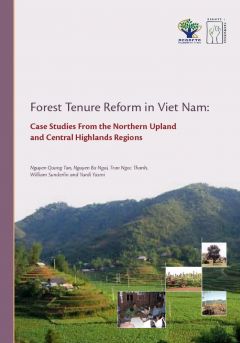Resource information
This study is part of a project implemented by the Regional Community Forestry Training Center for the Asia and Pacific (RECOFTC) in collaboration with the Rights and Resources Group (RRG) to advance policy and market reforms in four countries: Cambodia, Lao PDR, Thailand, and Viet Nam. The overall goal of the project is to reduce poverty in forest areas, expand sustainable forest use and trade, and increase the effectiveness and impact of regional analysts and institutions in advancing pro-poor forest policy and market reforms. Project activities include strategic analytical work that contributes to the development and support of a regional network of policy and market analysts and supports the engagement of policy and market leaders to raise awareness and advance tenure and policy reforms.
In Viet Nam, the current program of work focuses on analyzing the current situation regarding forest tenure and markets for forest products, in order to identify policy barriers, constraints, and issues for further work. The Vietnam Forestry University (VFU) had conducted an initial study that identified the gaps between the data needed for a good analysis and what is actually available at the national and sub-national levels. The objective of the current study is to analyze the implementation of new tenure arrangements on the ground, with the particular objective of recommending reforms that would help poor forest holders and communities in accessing, using, and trading their forests and forest products to improve their living standards. Dak Lak and Hoa Binh provinces have been selected for the study as representatives of the Central Highlands and Northern Upland regions, respectively.
This report presents a synthesis of findings from the two surveys undertaken in Dak Lak (by Dak Lak Department of Agriculture and Rural Development (DARD)) and Hoa Binh by VFU (See Annex A. for a list of members in the two research teams). It was prepared by Nguyen Quang Tan, Nguyen Ba Ngai, Tran Ngoc Thanh, William Sunderlin and Yurdi Yasmi, with contributions from Mai Thi Thanh Nhan, Nguyen Dang Khoa, and Tran Ngoc Dan Thuy.



